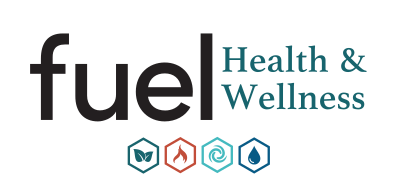Do you know if you are getting the proper nutrition for recovery following an injury or surgery?
This can often be missed in the rehab process but it is an extremely important piece to research and follow in order to get successful outcomes and accelerate the healing process.
Here are 5 nutritional tips that every athlete can use to improve their recovery from injury or a surgery.
- Consume 1.3-2.5 g of protein per kg of body weight spread throughout 4-6 meals each day.
- Protein is needed to help maintain muscle mass and avoid muscle atrophy. One of the biggest reasons that recovery from an injury or surgery will take so long is due to the loss of muscle mass which often happens during periods of disuse or immobilization which may be necessary for healing especially after a surgery.
- Leucine intake and branch chain amino acids
- There are a total of twenty amino acids that comprise muscle protein and nine of the twenty are considered essential amino acids (EAAs), which means that they cannot be produced by the body, and therefore are crucial components regarding a balanced diet. Muscle protein is in a constant state of turnover, meaning that protein synthesis is occurring continuously to replace protein lost as a consequence of protein breakdown. For synthesis of new muscle protein, all the EAAs, along with the eleven non-essential amino acids (NEAAs) that can be produced in the body, must be present in adequate amounts. Leucine, isoleucine, and valine are three branch-chain amino acids out of the nine EAAs. Leucine is especially important since it is not only a precursor for muscle protein synthesis, but also may play a role as a regulator of intracellular signaling pathways that are involved in the process of protein synthesis. (5) Focusing on foods high in leucine, such as animal proteins (these include chicken, beef, milk, pork, fish, etc.) and whey protein, may aid in a faster recovery from injury. It is recommended to get 3 g of leucine per serving of protein each meal. (1, 5)
- Omega-3 Fatty Acid Supplementation
- Omega-3 Fatty Acids may be beneficial due to the anti-inflammatory properties that it has and it may also help with muscle protein synthesis to help build and repair muscle tissue. Although more research is needed for further conclusion with regards to the appropriate dose and the mechanisms by which it may be helpful. (3)
- Take 1,000-2,000 mg of vitamin C supplementation per day.
- Vitamin C may help accelerate bone healing, increase type I collagen synthesis and reduce oxidative stress parameters. Vitamin C not only helps with healing from bone fractures but also may help with healing of tendons and ligaments. (2)
- Vitamin D supplementation
- Vitamin D is necessary for optimal bone formation and low levels of vitamin D have been shown to impair recovery following knee surgery in certain studies. (4)
It is important to look at the whole picture of our health and wellness when recovering from an injury. Rest, nutrition, and rehabilitation are all important factors to having successful outcomes!
Resources
1. Abbie E. Smith-Ryan, Katie R. Hirsch, Hannah E. Saylor, Lacey M. Gould, Malia N. M. Blue; Nutritional Considerations and Strategies to Facilitate Injury Recovery and Rehabilitation. J Athl Train 1 September 2020; 55 (9): 918–930. doi: https://doi.org/10.4085/1062-6050-550-19
2. DePhillipo NN, Aman ZS, Kennedy MI, Begley JP, Moatshe G, LaPrade RF. Efficacy of Vitamin C Supplementation on Collagen Synthesis and Oxidative Stress After Musculoskeletal Injuries: A Systematic Review. Orthop J Sports Med. 2018;6(10):2325967118804544. Published 2018 Oct 25. doi:10.1177/2325967118804544
3. McGlory C, Calder PC, Nunes EA. The Influence of Omega-3 Fatty Acids on Skeletal Muscle Protein Turnover in Health, Disuse, and Disease. Front Nutr. 2019;6:144. Published 2019 Sep 6. doi:10.3389/fnut.2019.00144
Papadopoulou SK. Rehabilitation Nutrition for Injury Recovery of Athletes: The Role of Macronutrient Intake. Nutrients. 2020;12(8):2449. Published 2020 Aug 14. doi:10.3390/nu12082449
4. Tipton KD. Nutritional Support for Exercise-Induced Injuries. Sports Med. 2015;45 Suppl 1:S93-S104. doi:10.1007/s40279-015-0398-4
5. Wolfe, R.R. Branched-chain amino acids and muscle protein synthesis in humans: myth or reality?. J Int Soc Sports Nutr 14, 30 (2017). https://doi.org/10.1186/s12970-017-0184-9

